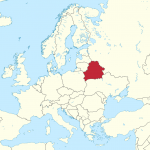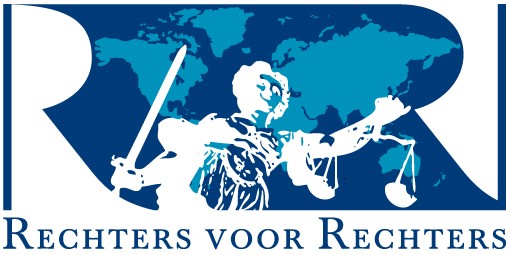
A year has passed since August 9, 2020, when Belarus held a presidential election that officially gave Alexander Lukashenko, who had been in power since 1994, another term in office. Tens of thousands of Belarusians considered the election rigged and took to the streets in mass peaceful protests.
Over the last year, according to the International Federation for Human Rights (FIDH) and Viasna, a Belarusian organisation documenting torture, at least 35,000 peaceful protesters have been detained, there have been 4,691 documented criminal court cases, 608 political prisoners and about 1,800 reports of torture. Hundreds of human rights activists have been persecuted and thousands have had to flee the country.
What is it like to be a judge in Belarus? Judges for Judges had a chance to speak to one of the few judges that decided to leave their function. Mr. J* worked as judge in a regional court in Belarus until October 2020. In August 2020, judge J refused to hear cases against citizens who had been arrested on the streets during the protests against the outcome of the Belarus presidential election. He felt morally obliged to resign and was later forced to leave the country for fear of reprisals.
*J is for Judge: for security reasons his name is not mentioned here.
Mr. J outlined the situation of the judiciary in Belarus as he finds it important that information regarding the bleak situation of the judiciary is spread.
Influence of president Lukashenko
All relevant decisions on the career of a judge are taken by the President. The appointments, the promotions and the dismissals. Although the Law prescribes a life time appointment after the second five-year term, over the past years Mr. Lukashenko has granted five year extensions only. Any extension can be refused without reasoning. The remuneration of an individual judge varies according to the evaluation of their decisions. When considered sloppy, or too lenient, this may lead to a reduction of up to 50 % on the salary.
Removal from office
Although it had happened that he had to take judicial decisions that went against his principles, Mr. J had just applied for his second five-year term and was awaiting the presidential decree, when on August 9, 2020 the protests erupted after the Presidential election. He and his colleagues were ordered to immediately impose a 15-day prison sentence on citizens who had been arrested on the streets. Because there was no case file, and there was no way to check the legality of their arrest, Mr. J refused. The head of his court gave him a day to think it over, but he again indicated that he would not cooperate. Mr. J withdrew his application for extension as he felt he could no longer fulfill his judicial tasks under these circumstances. He was subsequently put on minor cases, until in October 2020 he was removed from office.
Living in exile

He started working as an assistant for his mother, who was a lawyer. But then a number of searches of his home and workplace followed. Data carriers and paper work were seized. There was no formal document showing the legal ground of the seizure, nor was he ever told what the allegations were. When, shortly after, his mother also became the subject of investigation, he decided it was no longer safe to stay. He fled abroad with his family (wife and three children) and his mother. He now lives in exile outside of Belarus. He cannot work in the legal profession anywhere else, as the law differs from country to country.
Numerous resignations
Mr. J told us that to his knowledge, around 15 more judges have decided to resign for the same reasons. For the elderly among them the brutal crackdown on the protest following the presidential elections may have been a reason to take early retirement; the younger (former) judges will have to look for a job elsewhere. As long as they don’t talk to the press, they probably will be left alone by the authorities.
Obeying hierarchy and policy
The longer-serving judges almost all have a background within the investigation bodies or the public prosecutor’s office. It is therefore not surprising, according to Mr. J, that almost all judges (1200-1300 in total, roughly half of those being criminal judges and therefore more prone to political pressure than civil judges) continue to work and obey the hierarchy and policy they have become accustomed to over the past 25 years. There is no association of judges, and no general assembly of judges, so there is no structure for judges to share their experiences or concerns. Despite the deplorable state of the judiciary, the head of the Supreme Court continues to openly express the view that the judiciary is fair and independent. The least we can do, says Mr. J, is to show him wrong.
Further reading
- Ms Anaïs Marin, the UN Special Rapporteur on the situation of human rights in Belarus, wrote in her annual report covering the period from 1 April 2020 up to 31 March 2021: “The period under review was marked by the presidential election held on 9 August 2020, and the results of which were widely contested, owing to alleged multiple malpractices observed during the election campaign, when some leading opposition candidates were forced out of the electoral process, and on voting day, when vote-counting was allegedly marred by fraud. The election was immediately followed by a spontaneous and mostly peaceful popular mobilization to which the authorities responded with unjustified, disproportionate and often arbitrary force.”
- She earlier also wrote a thematic report on the human rights situation in Belarus covering the period up to 15 June 2020 focusing on the administration of justice. She reports that in Belarus, the judiciary and the court system are subject to the excessive control of the executive branch, as shown in the procedures for the appointment, tenure, and removal of judges that violate the principles guaranteeing the independence of judges.
- In the press-release she is quoted: “The deeply-rooted, systemic deficiencies of the judiciary, which I highlight in my report, imply that the fundamental freedoms and human rights of Belarusians are not only being violated on a daily basis: they are left unprotected,” Marin said. She stressed that, “dissenting voices should not be silenced, but should instead be listened to, because their main claim is, after all, that rule of law be respected in Belarus.”
- The Council of the European Union, implementing regulation (EU) 2021/997 of 21 June 2021 (implementing Article 8a(1) of Regulation (EC) No 765/2006 concerning restrictive measures in respect of Belarus). The list consists presently of 166 persons and 14 entities subject to restrictive measures. Twelve judges are mentioned on this list as they are responsible for numerous politically motivated rulings against journalists, opposition leaders, trade union activists, sportsmen and protesters. They are therefore held responsible for serious human rights violations and for seriously undermining the rule of law, as well as for the repression of civil society and democratic opposition.
- Two posts on the pro-human rights news site Charter 97, published on 25 December 2020 and 21 June 2021.
- The article by Alexander Vashkevich (European Humanities University, Vilnius, Lithuania) on the reasons why the Belarusian judicial system is totally dependent and showing the legal mechanisms that were used by the executive to achieve this. The creation of a super-presidential form of government and authoritarian political regime gave the president of Belarus crucial influence on the judiciary through the processes of selecting, appointing and reappointing and dismissing judges, and determining their remuneration and social packages.
- The expert opinion of Dr. Dainius Žalimas, President of the Constitutional Court of the Republic of Lithuania and Professor at Mykolas Romeris University (Vilnius), who wrote about the “Constitutional Legal Position on the Protection of the Constitutional Order”, adopted by the Constitutional Court of the Republic of Belarus (CCRB) on August 25, 2020. Prof. Žalimas outlines that it is a paradox that the CCRB, whose constitutional mission is to safeguard the constitutional order, the supremacy of the Constitution, and the rule of law, by adopting of this CCRB Position, has itself committed a manifest and grave breach of the Constitution of Belarus and the general principle of the rule of law. All judges of the CCRB were included in the list of national sanctions of the Baltic States after the adoption of this Position.
Photo 1: Homoatrox
Photo 2: TUBS
